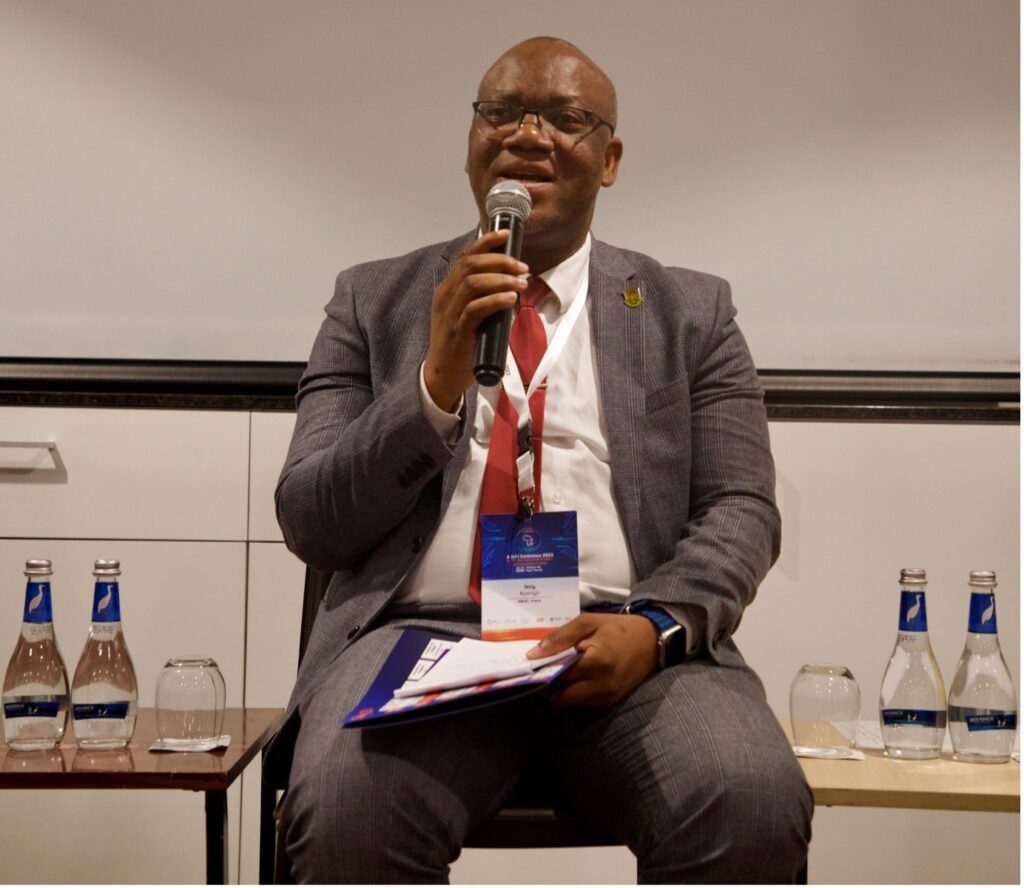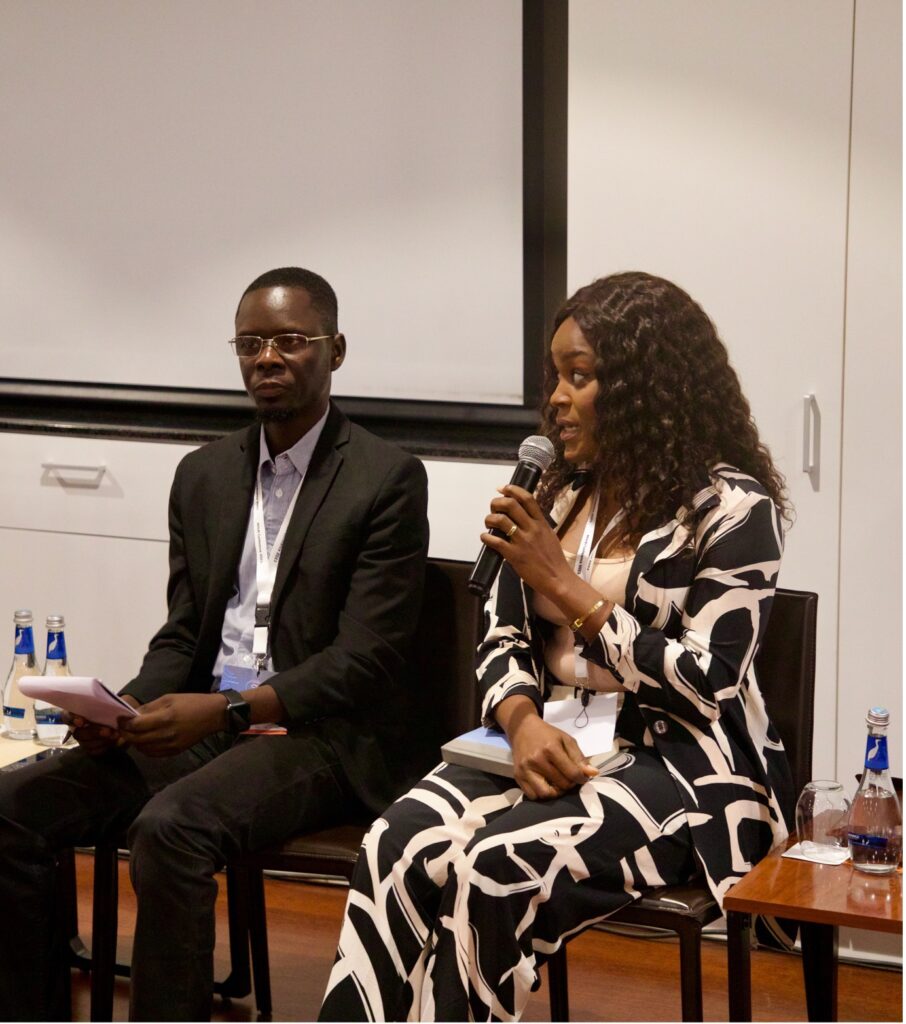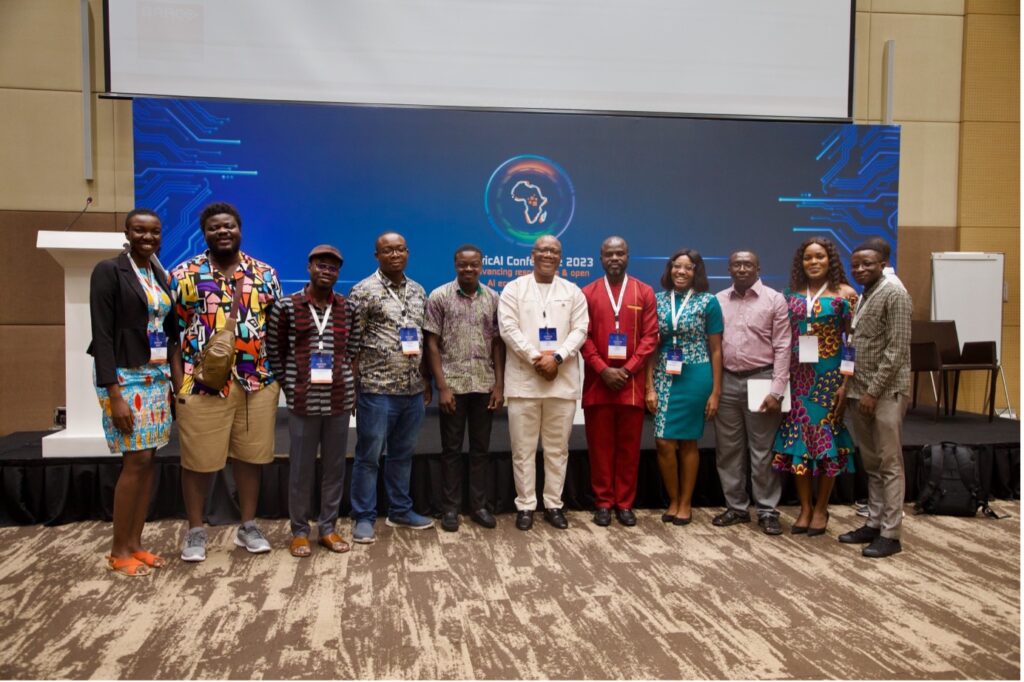The Responsible AI Lab (RAIL) led the discussion on using applied AI responsibly for advancing interventions for smallholder farmers through digital innovations at the AfricAI 2023 Conference in Kigali, Rwanda. International Development Research Centre (IDRC), Deutsche Gesellschaft für Internationale Zusammenarbeit (GIZ) and Niyel organised the inaugural AfricAI Conference from 12th to 14th June 2023 to provide a forum for exchange, learning and networking between key AI stakeholders and to discuss the advancement of responsible and open AI ecosystems in Africa.

Speaking on the solutions developed by RAIL for smallholder farmers, Prof. Jerry John Kponyo, Principal Investigator and Scientific Director, RAIL revealed that the lab had developed a plant disease detector.
He said it was developed with the farmers from scratch.
“Farmers invest a lot in the agriculture sector but lose all their investment to crop diseases; RAIL uses Natural Language Processing (NLP) in modelling the plant disease detector, which communicates with the farmers in their local dialects.“The lab also involves the farmers in the development process. AI is a good thing, and it can transform the agriculture space if farmers are involved in building the solutions,” he stated.
Prof. Mouhamadou Lamine BA, Project Engineer and Senegal Satellite Lab Lead, RAIL, encouraged using local AI solutions to promote innovations.
He said digital education is essential.

Highlighting gender-related issues in the agriculture space, Dr. Rita Udor, the Gender and Inclusivity OfficerRAIL, said the introduction of AI is likely to widen the already existing gender inequality in the agric sector.
She noted that gender-related issues must be addressed at the envisioning stage to the deployment stage for the benefit of all.“At RAIL, we consider gender in all aspects of the development process, from data collection and modelling to the implementation,” she revealed.

CEO of KaraAgro AI and RAIL’s AI Consultant, Darlington Akogo, who was also part of the panel, indicated the need for Afrocentric datasets. He observed that African datasets are not captured in the global datasets, making them unfit for African solutions. “The Karagro AI team have collected 250,000, the largest Afrocentric datasets. Models are as good as the datasets used to train them,” he said. He added that stakeholders must be proactive in managing the risk of AI in agriculture.
In his closing remarks, Prof. Kponyo noted the heightened conversation on AI regulation. He, however, stressed the need to have an excellent understanding of the AI space. Prof. Kponyo called on stakeholders to be educated on the positive impact of responsible AI.

Andrews Tang and Anthony Jacklingo Kwame Quansah Junior, both research associates at RAIL, presented their research innovations on deep learning for the reliable detection of adulterated palm oil and an Internet of Things (IoT) based attack detection using blockchain committees for federated learning solutions.